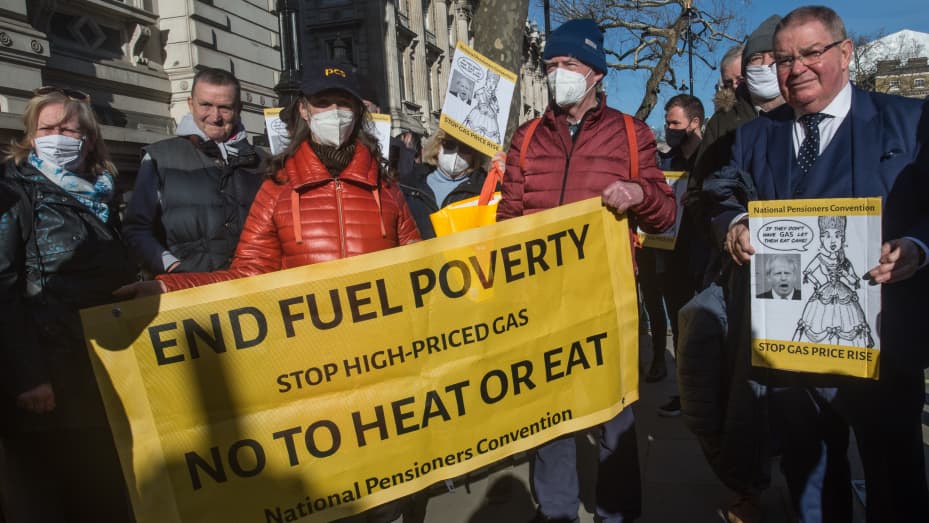- Joined
- Feb 26, 2019
- Messages
- 12,449
- Points
- 113
EUROPE ECONOMYBritain is becoming an ‘emerging market country,’ analyst says
PUBLISHED TUE, AUG 9 20226:35 AM EDTUPDATED TUE, AUG 9 202210:50 AM EDTElliot Smith@ELLIOTSMITHCNBC
KEY POINTS
- The Bank of England warned last week that the U.K. economy will enter its longest recession since the global financial crisis in the fourth quarter, leading GDP 2.1% lower.
- In a research note Monday, Saxo Bank’s head of macro analysis, Christopher Dembik, said the U.K. is “more and more looking like an emerging market country.”
- The only factor missing from a characterization as an EM country, Dembik said, is a currency crisis, with the British pound holding firm.

Pensioners protest over rising fuel prices at a demonstration outside Downing street called by The National Pensioners Convention and Fuel Poverty Action on February 7, 2022 in London, England.
Guy Smallman | Getty Images
Political instability, trade disruptions, an energy crisis and skyrocketing inflation are rendering the U.K. an “emerging market country,” according to Saxo Bank.
The Bank of England warned last week that the U.K. economy will enter its longest recession since the Great Financial Crisis in the fourth quarter, leading GDP 2.1% lower. Meanwhile, inflation is projected to peak above 13% in October.
Importantly, the central bank is not anticipating a sharp rebound from the recession, and sees GDP remaining 1.75% below today’s levels in mid-2025.
In a research note Monday, Saxo Bank Head of Macro Analysis Christopher Dembik said the U.K. is “more and more looking like an emerging market country.”
A new prime minister will be announced on Sept. 5 after Boris Johnson’s resignation, with Conservative candidates Liz Truss and Rishi Sunak vying for the keys to 10 Downing Street as the country faces a historic cost of living crisis and the sharpest fall in living standards on record.
The U.K.’s energy price cap is set to rise by another 70% in October, pushing energy bills above £3,400 ($4,118) per year and driving millions of households into poverty, with a further increase to the cap expected early next year.
The country has also been battling trade disruptions due to Brexit and Covid-related bottlenecks.
The only factor missing from a characterization as an emerging market country, Dembik said, is a currency crisis, with the British pound holding firm despite the litany of macroeconomic headwinds.
“It only dropped 0.70% against the euro and 1.50% against the U.S. dollar over the past week. Our bet: after surviving Brexit uncertainty, we don’t see what could push the sterling pound into a free fall.”
However, he suggested that all leading indicators point to more pain ahead for the British economy. For instance, new car registrations — often perceived as a leading indicator of the health of the British economy — fell from 1.835 million in July 2021 to 1.528 million last month, a drop of 14%.
“This is the lowest level since the end of the 1970s. The recession will be long and deep. There won’t be an easy escape. This is most worrying, in our view. The Bank of England assesses the slump will last with GDP still 1.75% below today’s levels in mid-2025,” Dembik said.
https://www.cnbc.com/2022/08/09/britain-is-...alyst-says.html
